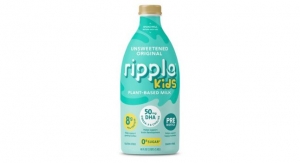03.02.15
Recent studies have shown that added sugars, particularly those containing fructose, are a principal driver of diabetes and pre-diabetes, even more so than other carbohydrates. Clinical experts writing in Mayo Clinic Proceedings challenged current dietary guidelines that allow up to 25% of total daily calories as added sugars, and proposed drastic reductions in the amount of added sugar, and especially added fructose, people consume.
Worldwide, approximately one in 10 adults has type 2 diabetes, with the number of individuals afflicted by the disease across the globe more than doubling from 153 million in 1980 to 347 million in 2008. In the U.S., 29 million adults (one in 11) have type 2 diabetes and another 86 million (more than one in three) have pre-diabetes.
“At current levels, added-sugar consumption, and added-fructose consumption in particular, are fueling a worsening epidemic of type 2 diabetes,” said lead author James DiNicolantonio, PharmD, a cardiovascular research scientist at Saint Luke’s Mid America Heart Institute, Kansas City, MO. “Approximately 40% of U.S. adults already have some degree of insulin resistance with projections that nearly the same percentage will eventually develop frank diabetes.”
The net result of excess consumption of added fructose is derangement of both overall metabolism and global insulin resistance, the authors said. Other dietary sugars not containing fructose seem to be less detrimental in these respects. Indeed, several clinical trials have shown that compared to glucose or starch, isocaloric exchange with fructose or sucrose leads to increases in fasting insulin, fasting glucose, and the insulin/glucose responses to a sucrose load. “This suggests that sucrose (in particular the fructose component) is more harmful compared to other carbohydrates,” added Dr. DiNicolantonio. Researchers examined animal experiments and human studies to come to their conclusions.
The totality of the evidence is compelling to suggest that added sugar, and especially added fructose (usually in the form of high-fructose corn syrup and table sugar), are a serious and growing public health problem, according to the authors.
The 2010 Dietary Guidelines for Americans said it is acceptable for some people to consume up to 19% of calories from added sugars, and the Institute of Medicine permits up to 25% of total calories from added sugars. In contrast, the World Health Organization recommends that added sugars should make up no more than 10% of an entire day’s caloric intake, with a proposal to lower this level to 5% or less for optimal health.
Worldwide, approximately one in 10 adults has type 2 diabetes, with the number of individuals afflicted by the disease across the globe more than doubling from 153 million in 1980 to 347 million in 2008. In the U.S., 29 million adults (one in 11) have type 2 diabetes and another 86 million (more than one in three) have pre-diabetes.
“At current levels, added-sugar consumption, and added-fructose consumption in particular, are fueling a worsening epidemic of type 2 diabetes,” said lead author James DiNicolantonio, PharmD, a cardiovascular research scientist at Saint Luke’s Mid America Heart Institute, Kansas City, MO. “Approximately 40% of U.S. adults already have some degree of insulin resistance with projections that nearly the same percentage will eventually develop frank diabetes.”
The net result of excess consumption of added fructose is derangement of both overall metabolism and global insulin resistance, the authors said. Other dietary sugars not containing fructose seem to be less detrimental in these respects. Indeed, several clinical trials have shown that compared to glucose or starch, isocaloric exchange with fructose or sucrose leads to increases in fasting insulin, fasting glucose, and the insulin/glucose responses to a sucrose load. “This suggests that sucrose (in particular the fructose component) is more harmful compared to other carbohydrates,” added Dr. DiNicolantonio. Researchers examined animal experiments and human studies to come to their conclusions.
The totality of the evidence is compelling to suggest that added sugar, and especially added fructose (usually in the form of high-fructose corn syrup and table sugar), are a serious and growing public health problem, according to the authors.
The 2010 Dietary Guidelines for Americans said it is acceptable for some people to consume up to 19% of calories from added sugars, and the Institute of Medicine permits up to 25% of total calories from added sugars. In contrast, the World Health Organization recommends that added sugars should make up no more than 10% of an entire day’s caloric intake, with a proposal to lower this level to 5% or less for optimal health.



























